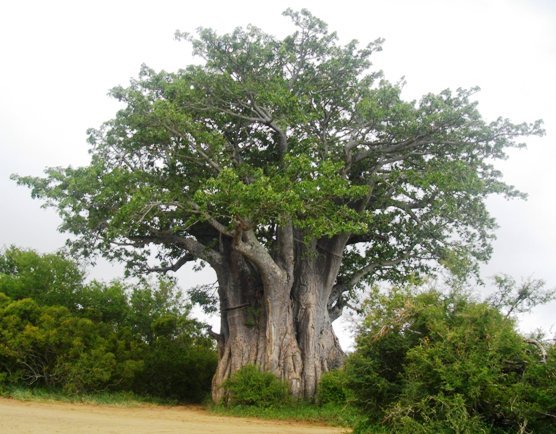Adansonia digitata summer foliage

Author: Ivan Lätti
Photographer: Ivan Lätti
The irregular undulations and fluting found on an old Adansonia digitata or baobab tree trunk are visible here. The tree was photographed in the Kruger National Park in January. Slight pinkish discoloration of the bark is present low down where some animals may have allowed themselves a back scratch.
Animals gifted with mobility have it over those living beings that can’t move away when accosted and molested; life is so much simpler if one’s food can’t run away!
This baobab carries an ample green crown as it is midsummer. By January bloom-time for baobabs is usually over. The trees grow large, waxy white flowers. Five broad petals open to a diameter of 20 cm, topped with numerous stamens.
A close-up of this treetop would probably reveal flower remains, bare ovaries tipped with persistent styles only. Petals drop off after about one day from the time a flower opens. That is if the tree is old enough to bear any. The youngest baobabs to flower are already 16 years old, sometimes they wait until 23.
Never pick a flower from a baobab, the local population may warn: The culprit is bound to be eaten by lion for offending the spirits thus.
And babies become strong if bathed in water in which pieces of baobab bark had been soaked. Dont leave the bark in the water for too long though, as this may cause the baby to become obese as a grown-up.
Believe these stories for understanding the flatness of the earth. Enjoy them for growing wings of fantasy (Coates Palgrave, 2002).

